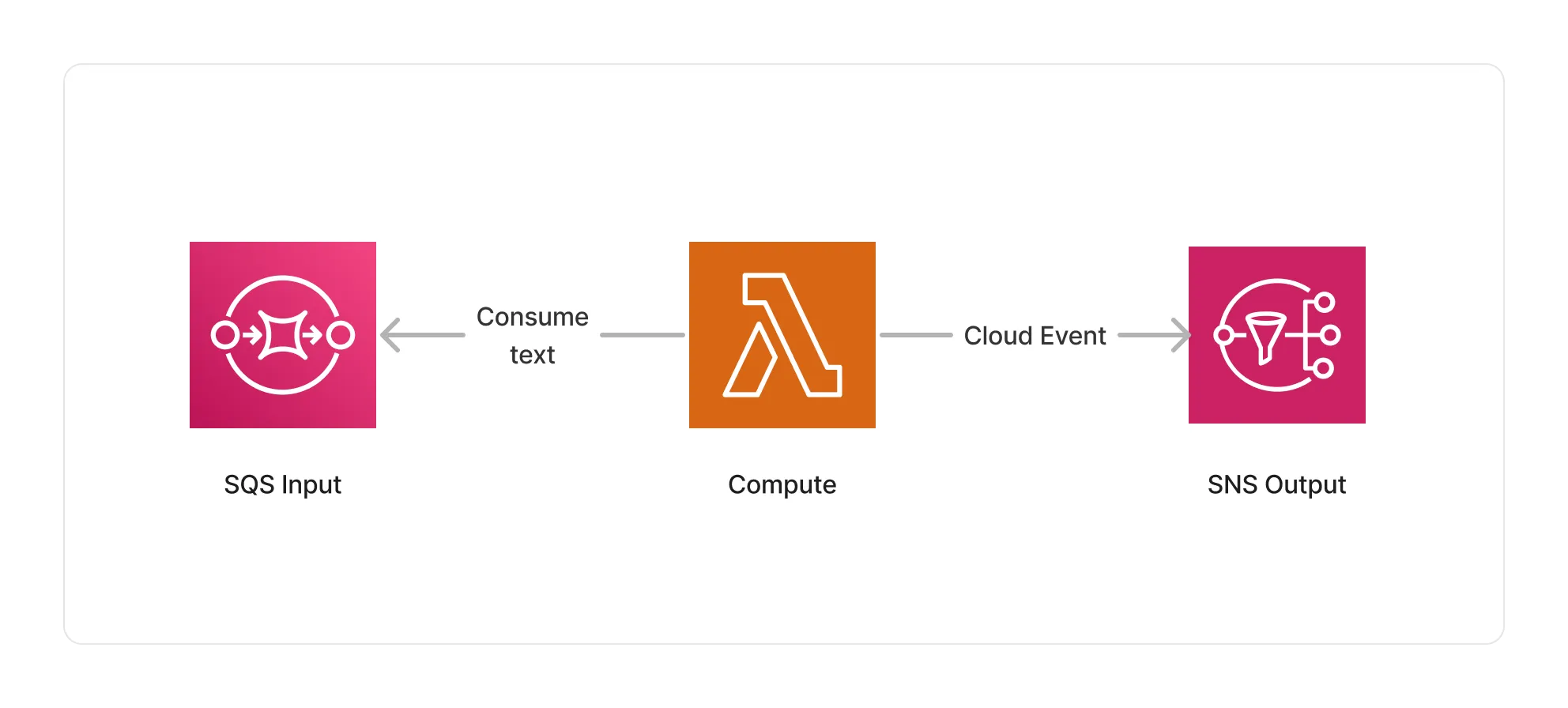Sentence Splitter
The sentence text splitter can be used to split text documents at scale based on a maximum chunk size, while preserving sentence boundaries. This implementation uses the NLTK library to tokenize text documents into sentences, and then splits the sentences into chunks of a maximum size.
📝 Splitting Text
To use this middleware, you import it in your CDK stack, and connect it to a data source providing text documents, such as the S3 Trigger.
import { SentenceTextSplitter } from '@project-lakechain/sentence-text-splitter';import { CacheStorage } from '@project-lakechain/core';
class Stack extends cdk.Stack { constructor(scope: cdk.Construct, id: string) { // The cache storage. const cache = new CacheStorage(this, 'Cache');
// Create the sentence text splitter. const splitter = new SentenceTextSplitter.Builder() .withScope(this) .withIdentifier('Splitter') .withCacheStorage(cache) .withSource(source) // 👈 Specify a data source .build(); }}Options
You can customize the way that the text splitter will split text documents by specifying a maximum chunk size in bytes.
ℹ️ The below example splits text documents based on a maximum chunk size of
4096bytes, while preserving sentence boundaries.
const splitter = new SentenceTextSplitter.Builder() .withScope(this) .withIdentifier('Splitter') .withCacheStorage(cache) .withSource(source) .withMaxBytesLength(4096) .build();The default values for this middleware options are documented below.
| Option | Default | Description |
|---|---|---|
maxBytesLength | 4000 | The maximum size of each text chunk. |
📄 Output
This middleware takes as an input text documents of a given size, and outputs multiple text documents that are the result of the text splitting process. This allows to process each chunk of text in parallel in downstream middlewares.
In addition to producing new text documents, this middleware also associates metadata with each chunk, such as the chunk identifier and order relative to the original document. Below is an example of CloudEvent produced by this middleware.
💁 Click to expand example
{ "specversion": "1.0", "id": "1780d5de-fd6f-4530-98d7-82ebee85ea39", "type": "document-created", "time": "2023-10-22T13:19:10.657Z", "data": { "chainId": "6ebf76e4-f70c-440c-98f9-3e3e7eb34c79", "source": { "url": "s3://bucket/text.txt", "type": "text/plain", "size": 24536, "etag": "1243cbd6cf145453c8b5519a2ada4779" }, "document": { "url": "s3://bucket/text.txt", "type": "text/plain", "size": 24536, "etag": "1243cbd6cf145453c8b5519a2ada4779" }, "metadata": { "properties": { "kind": "text", "attrs": { "chunk": { "id": "4a5b6c7d8e9fd21dacb", "order": 0 } } } }, "callStack": [] }}🏗️ Architecture
This middleware runs within a Lambda compute based on the ARM64 architecture, and packages the NLTK library to run the text splitting process.

🏷️ Properties
Supported Inputs
| Mime Type | Description |
|---|---|
text/plain | UTF-8 text documents. |
Supported Outputs
| Mime Type | Description |
|---|---|
text/plain | UTF-8 text documents. |
Supported Compute Types
| Type | Description |
|---|---|
CPU | This middleware only supports CPU compute. |
📖 Examples
- Text Splitting Pipeline - Builds a pipeline for splitting text documents using different text splitting algorithms.